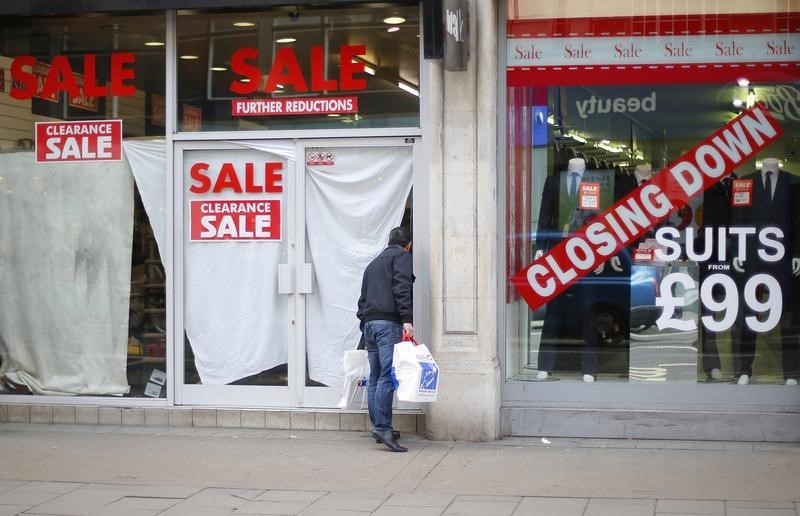By Maiya Keidan
LONDON (Reuters) - Veteran hedge fund manager Crispin Odey believes Britain is "destined" to have a recession leaving richly valued stocks vulnerable to sharp declines, he said in a letter to investors seen by Reuters.
London-based Odey said the Bank of England had engineered an unsustainable situation in which company earnings had fallen but the stock market continued to rise.
"These times are getting interesting," he wrote. "The FTSE 100 share index is now up 30 percent over five years, whilst earnings have fallen by 80 percent."
The FTSE 100 (FTSE) currently trades at 15.8 times forward earnings, a 13 percent premium to its average over the past three decades, according to Thomson Reuters data.
For the index to trade at 13 times earnings, close to its long-term average multiple, and provided profits did not fall further, Odey said stocks could decline as much as 80 percent.
Bank of England governor Mark Carney should be raising interest rates to counter the growing difference between inflation next year and today's interest rates, he said.
"What the UK is promising is rising wages, recession, inflation and falling profits," wrote Odey. "Not exactly the prize that ticket holders in the FTSE and the gilt market have paid up for."
Odey had previously told Reuters Britain's vote in June to leave the European Union would allow it to navigate a slowing global economy better.
In his letter he said: "On the back of the uncertainty for overseas investors in UK PLC following on from the Brexit result, the current account deficit is ballooning and the budget deficit is following."
"As sterling falls against all its trading partners’ currencies, it is mechanically ensuring that inflation
rises up through 3.5 percent."
Britain's annual consumer price inflation rose to 1.0 percent in September from 0.6 percent in August. The Bank of England cut interest rates in August for the first time since 2009 to help cushion the economy after the Brexit vote.
Britain's blue chip FTSE 100 share index (FTSE) hit a record high last month. Since Britons voted on June 23 to leave the EU, the pound has dropped almost 20 percent against the dollar.
Odey's 332 million pound Opus Fund made gains of 1.1 percent in September, the letter showed, and held 28 percent of its assets in cash.
